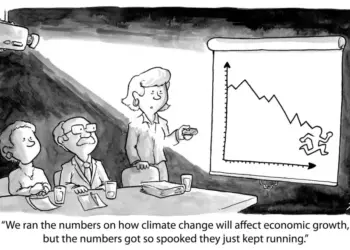On August 7, 2023, Italian Prime Minister Giorgia Meloni approved a 40% windfall tax on local banks.
The following day, Italy’s government, however, appeared to reverse the decision, setting a 0.1% cap on the share banks needed to pay — and that looked like serious backtracking.
Before diving into the reason for this change, let’s look at what the windfall tax is: A surtax imposed by governments on certain businesses based on profits made as a result of something the company wasn’t responsible for. An example of this would be pharmaceutical, fossil fuel and food companies earning bumper profits during the Covid-19 pandemic.
The decision to impose this tax depends on how much that sector has earned in comparison to others. If the government feels that a particular sector is having an above-average profit, then they might decide to set a windfall tax.
The overall goal of this maneuver is to redistribute the excess wealth in one area to aid other sectors, which might have not benefited from the economic growth as much.
What Italy Did: A Double Maneuver, Applying a Surtax and Limiting It With a Cap
What Italian Prime Minister Giorgia Meloni did this week eventually turned out to be a complex, dual maneuver.
First, she approved a 40% windfall tax on banks in Italy. The decision followed a period of rapid interest rates increase, which had allowed banks to profit off people asking for loans and mortgages.
The surtax was meant to provide the Italian treasury with extra money to aid mortgage holders and cut taxes. Analysts at Jefferies, an American multinational independent investment bank and financial services company, stated that the 10 biggest banks could pay roughly 4.9 billion euros to the state.
After the windfall tax was approved, bank shares dropped. Italy’s largest bank, Intesa Sanpaolo, closed Tuesday 8.67% lower. BPER — Intesa Sanpaolo’s mid-sized rival — closed the day 10.9% lower.
Analysts were quick to say that Italy’s decision to introduce the windfall tax undermined investors confidence, portraying a market totally unprepared for the cut.
Moreover, after the European Central Bank had increased interest rates by 0.25% last week, analysts, fearing recession, had also called for a pause on this rise, thus signaling a change in the investment climate.
Related articles: ExxonMobil Sues EU Over Unprecedented Windfall Tax | Taxing the Rich: 5% Tax Could Lift 2 Billion out of Poverty, Report Shows | Climate Strategies in Banking: How the World’s Largest Banks Address Climate Change
So, the Italian government undoubtedly took note and, in an attempt to regain investors’ trust, on Tuesday evening Italian Economic Minister Giancarlo Giorgetti modified the previous decision introducing a 0.1% cap on the windfall tax.
The 0.1% cap means that banks will not be required to pay more than 0.1% of their total assets, even if this percentage falls below the 40% windfall tax approved earlier.
Apparently, this decision worked. All the major banks — Intesa Sanpaolo, Banco BPM, and UniCredit — closed the day positively. The best performer was Finecobank, with a positive 4%.
Expectations are now that the government, even with the cap in place, will obtain enough money to achieve its original objective of aiding mortgage holders and generally cut taxes to boost economic activity.
The Windfall Tax Abroad
Italy is not the only country to have introduced a windfall tax. In July 2022, Spain’s government imposed a similar, temporary tax on banks to raise 7 billion euros to lower the rising costs of living.
Hungary and the Czech Republic also introduced a similar surtax.
In 2022, Hungary imposed a windfall tax in several sectors, such as banks, energy firms, and insurers. The bill is set to earn the government more than 4 billion euros between 2022 and 2023, effectively aiding the country’s budget deficit.
Other countries, such as the Czech Republic, introduced an even higher windfall tax. In November 2022, the Czech lower parliaments approved a 60% windfall tax on banks and energy firms. Their goal is to raise more than 3 billion euros to aid people struggling to cope with the rising gas and energy prices.
Overall, there is a general European trend of increased windfall taxes. It would be interesting to see how this all plays out in the long term: will the governments really gain enough funds with such maneuvers to meaningfully invest this extra money to aid the public and make a difference?
Editor’s Note: The opinions expressed here by the authors are their own, not those of Impakter.com — In the Featured Photo: Italian Prime Minister Giorgia Meloni, February 2022. Featured Photo Credit: Wikimedia Commons










